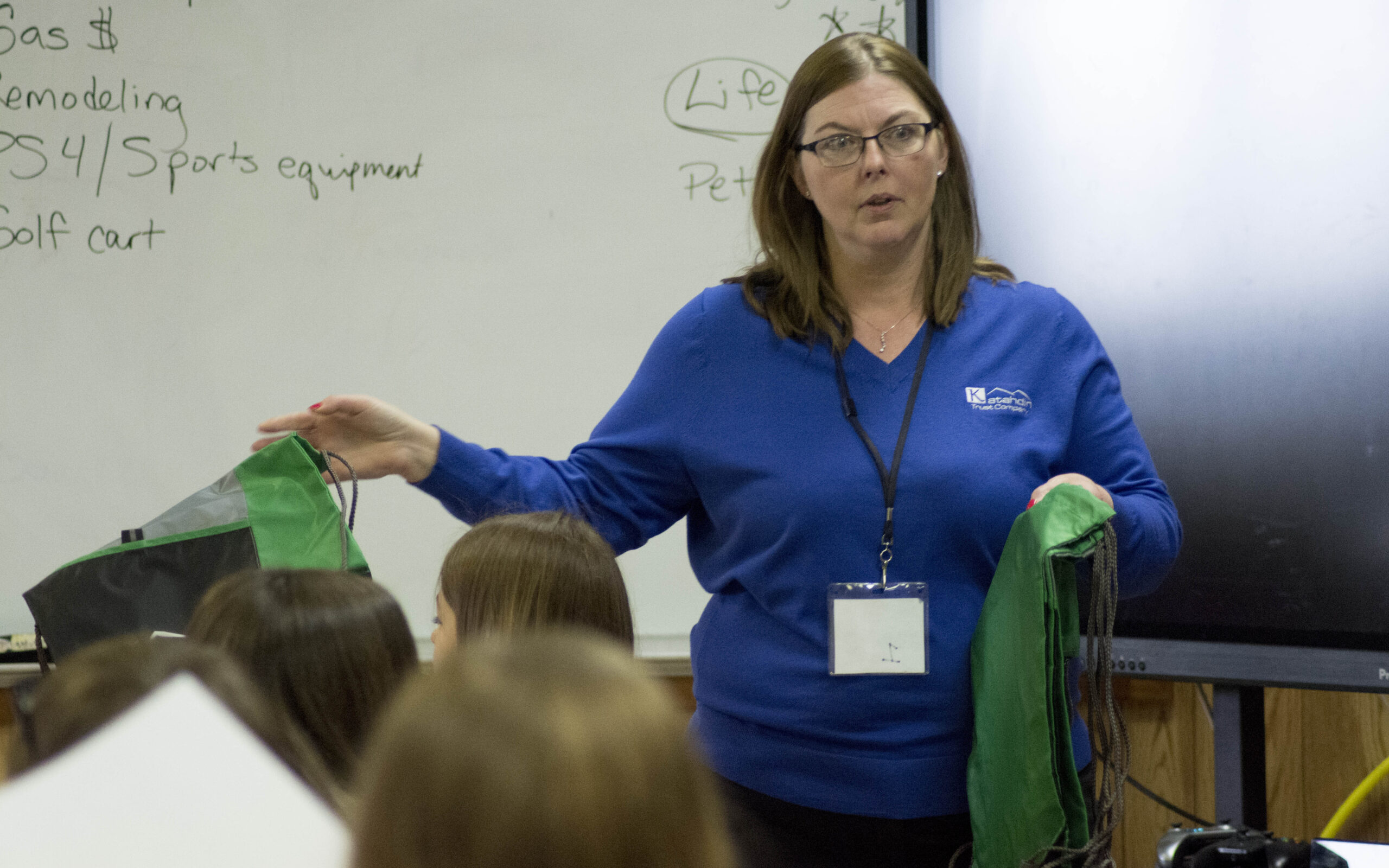
WOODLAND, Maine — Katahdin Trust staffers made an appearance at Woodland Consolidated School on Thursday to teach students about the importance of saving money and opening a bank account.
Commercial Services Representative Nikki Lockhart and Teller Deb Young both said they felt the visit went over very well, and were surprised by just how much the students already knew about savings as well as their future goals.
“They’re consciously thinking about money and saving,” said Young, “which is great at that age. They were a phenomenal group of kids.”
Lockhart added that it “seems like they have their short-term and long-term goals in check.”
Students were asked during the presentation to come up with a list of words for a mad-libs style story about a person with trouble properly saving money, after which they were asked to list out short-term goals, goals for six months to two years, and long-term goals of five years or more.
Some of the short-term goals included “skating equipment,” “more clothes,” “a blacksmith torch,” and “a grip for my golf clubs.”

Woodland Consolidated School 7th graders learn about the importance of saving money during a visit from staffers of Katahdin Trust Company on April 25. Participating in the session are, from left back, Katahdin Trust Commercial Services Representative Nikki Lockhart, Delaney Crouch, Matt Pratt, Garin Hanley, Riley Burlock, Jillian Zeigler, Abby Page, Natalie Landeen, Lily Bray, Emma Butler, Caitlin Jackson, Nevaeh Moody, and Katahdin Trust Teller Deb Young; and in from left front, Jeremiah Holmes, Keanen Masse, Joey Marrero, and Jim O’Meara.
(Chris Bouchard)
In the middle range, several students said they would like to save up for a car, with one boy saying he plans to save up for gas money as he can get his “scooter license in Canada” next year.
About 15 students, however, said that “college” is a top priority for long-term savings, with many indicating that they would also like to save up for a house or apartment, as well as a dog, in addition to college.
One student asked how to create a savings account with Katahdin Trust, and Lockhart said it only takes $10 and a parent or guardian’s name on the account for a minor.
Another asked how soon they could apply for a debit card.
“Debit cards are only for checking accounts,” said Lockhart, “but we have ATM cards and for those you have to be at least 16 years old.”
Both Lockhart and Young also explained the importance of collecting interest in a savings account, and that by putting away $10 a month every month for three years, they could gain another percent of their savings on top of what they’ve put away.
“$120 a year doesn’t sound like a lot,” said Young, “but it will grow if you keep saving.”
Both concluded the event by handing out treat bags to the students, and then moved on to teach another class at the school.
After the first class, Young said that discussions about money are becoming more common than before, and that now “it’s more of an open conversation.”
Lockhart added that the event is a good way to show young people “where to start” in terms of saving money, which could begin with a savings and checking account, and eventually move to a CD or certificate of deposit.







